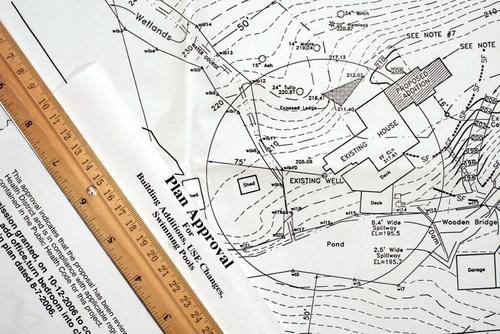Understanding the Basics of Land Use and Zoning in Illinois
 If you are planning to build - be it a custom home, subdivision, or mini mall - there are some rules and regulations that you will have to follow. Known as land use and zoning ordinances, these laws restrict what can be built where. Highly complex and esoteric, these laws can make or break your land development or building project. The following information can help you understand the basics.
If you are planning to build - be it a custom home, subdivision, or mini mall - there are some rules and regulations that you will have to follow. Known as land use and zoning ordinances, these laws restrict what can be built where. Highly complex and esoteric, these laws can make or break your land development or building project. The following information can help you understand the basics.
Why So Many Rules?
Zoning laws and land use regulations were first adopted in New York City in 1916. Since that time, they have been adopted by almost every state, city, and county. Their purpose is multifaceted, covering a wide range of social, environmental, and even appearance issues, including:
- The preservation of historical sites and natural resources,
- Ensuring the safety and well-being of the community,
- Maintaining aesthetic appearances throughout certain areas of the community,
- Preservation of property values,
- Overall design of the city/state/community,
- Regulation of traffic,
- Waste water management, and
- Public convenience.
What You Need to Know About Zoning Ordinances
Most municipalities (cities, counties, etc.) are divided into residential, commercial, and industrial districts (otherwise known as zones). Generally, these are fairly distinct and separate from one another. For example, it is unlikely that you would find a power plant in a residential zone. Within these different zones, there may be additional restrictions and/or regulations. For example, in a residential district, a house may be limited in the number of stories it can have, or in the type of structures that can be added in or near the home (sheds, fences, etc.). In a business district, there may be restrictions regarding setbacks from the street, maximum height of the building, and minimum cost. Features of historical locations might need to be preserved, and there may even be ordinances that govern what kind of business can be built (i.e. restrictions that prohibit the sale of alcohol within an establishment).
What You Need to Know About Land Use Regulations
Land use is somewhat different than zoning ordinances because it focuses more on guiding future development, rather than the regulation of current structures. Zoning laws still apply in this situation, but the goal is to ensure that new and added structures (including homes, townhomes, businesses, subdivisions, streets, etc.) follow the municipality's overall master plan. These rules can apply, even outside of a city since even outlying communities can affect the city itself.
Restrictions Impose a Need for Due Diligence
Every person who wishes to build, modify, improve, or even transfer the use of a business or structure should practice due diligence before purchasing a parcel of land, property, or a home to prevent zoning and land use conflicts. Further, it is a wise decision to seek the assistance of a skilled real estate attorney when vetting of a land or building project. Able to help you decipher zoning laws and understand how they might affect your project, they can increase the chances that your project will be a success.
For a name and experience that you can trust, turn to Stock, Carlson & Asso. LLC. Our DuPage County real estate lawyers have been helping builders, land developers, land owners, and prospective homeowners with zoning and land use issues for more than 35 years. We can help you save time, energy, and money so you can focus on the future and completion of your project. Call us at 630-665-2500 and schedule your consultation to get started today.
Sources:
http://www.burkecountynd.com/FAQ%20Zoning.pdf
https://www.municode.com/library/il/dupage_county/codes/code_of_ordinances

 630-665-2500
630-665-2500







